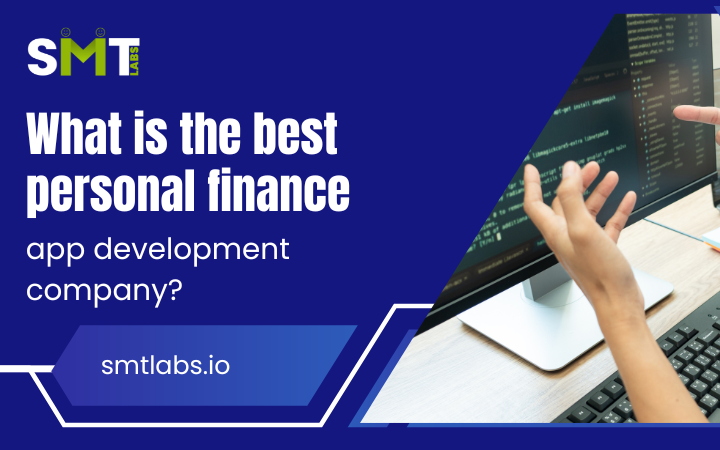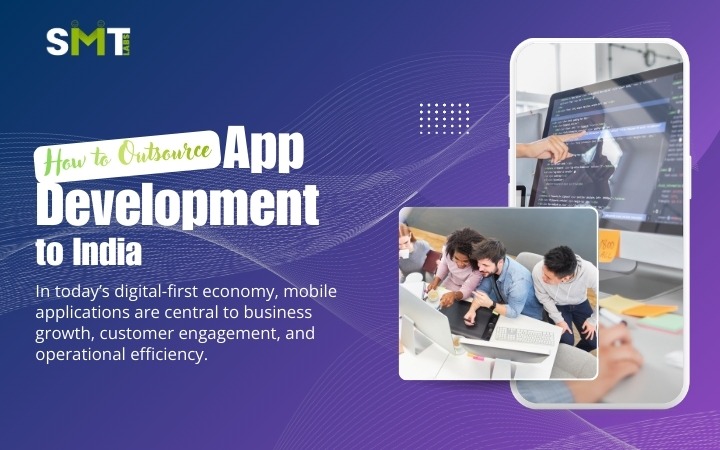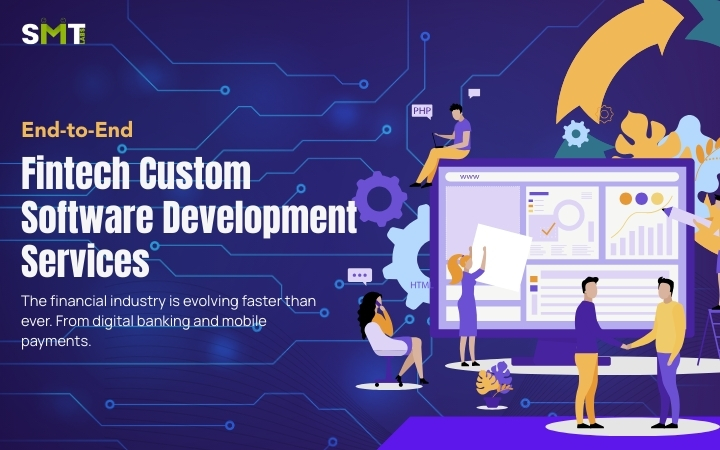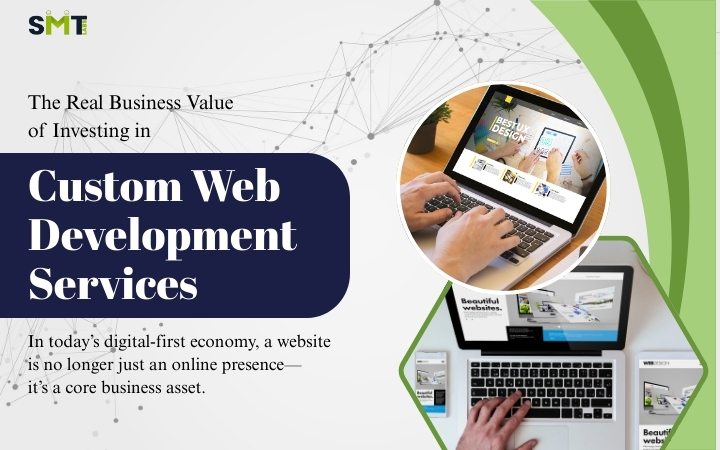What is the best personal finance app development company?

In the ever-competitive fintech landscape, choosing the best personal finance app development company can make or break your product’s success. With rising customer expectations, regulatory scrutiny, and technical complexity, you need a partner that truly understands financial software development, fintech app development, and the unique challenges of the U.S. market. In this article, we’ll explore what separates top-tier firms, how to evaluate them, and why SMTLabs may be the strategic partner you’ve been seeking.
What defines “best”? For one client it’s exceptional UX and mobile design. For another, it’s bulletproof security, compliance, or AI analytics. The ideal company aligns with your priorities: delivering robust fintech software development services while mitigating risk. Whether you search for “fintech software developer,” “best fintech app developers,” or “financial app development companies,” the key is to find a firm that combines domain insight, technical excellence, and a culture of trust.
Let’s walk through what to demand from a partner and how to separate the worthy from the rest.
2. Core Capabilities to Look For
To deliver a truly competitive personal finance platform, a fintech software development firm must offer more than just coding skills. Here are the core capabilities you should demand:
Domain Expertise in Financial App Development
A generalist app developer may struggle when handling bank integrations, transaction flows, budgeting logic, interest calculations, or fund transfers. The best companies specialize in financial app development and financial software development companies with track records in banking, payments, lending, investing, or personal finance.
Regulatory & Security Compliance (PCI DSS, GDPR, SOC2, CCPA, etc.)
If your app handles payments, financial data, account aggregation, or personal information, compliance is non-negotiable. Your partner must be well-versed in PCI DSS, SOC2, GLBA, and U.S. state privacy laws. They should build fintech app development solutions with Zero Trust, encryption at rest/in transit, secure key management, and routine audits.
UX/UI & Mobile-First Design in Fintech
Personal finance apps live or die by interface clarity. Users expect intuitive flows, micro-interactions, dashboards, contextually relevant alerts, dark mode, and sleek UX. Your fintech software development company must include experienced designers who understand human psychology, financial behavior, and mobile constraints.
Back-end Architecture, API Integrations & Scalability
A robust backend is essential for handling account aggregation, real-time data, transaction processing, reconciliation, caching, queuing, microservices, and integration with banks (via Plaid, Yodlee, SaltEdge, open banking APIs). Scalability, reliability (99.9%+ uptime), and modularity are must-haves.
Data Analytics, AI/ML & Personalization
Modern personal finance apps expect features like spending prediction, anomaly detection, intelligent insights, expense categorization, and alerts. A top fintech software development company must have data science capabilities, ability to plug in ML models, and personalize experiences at scale.
Ongoing Support, Maintenance & Upgrades
Development doesn’t end at launch. You’ll need bug fixes, compliance updates, feature expansion, performance optimizations, and support for new OS versions. The “best fintech app developer” will offer post-launch services and service level agreements (SLAs).
3. Top Traits That Distinguish a Leading Fintech Software Development Company
When you scan dozens of firms, these traits will help you filter smartly:
Proven Track Record & Case Studies
Look for companies that have launched financial app development projects with real users. Examine case studies: Did their app scale? Did they tackle regulatory challenges? Did they integrate with banking APIs? A track record in the best fintech app developers reinforces trust.
Skilled Team of Fintech App Developers
Your partner must bring full-stack engineers, security architects, data scientists, QA testers, DevOps, and designers — all experienced in fintech. A strong in-house team beats outsourcing to unknown subcontractors.
Transparent Process & Agile Methodologies
The best firms use agile sprints, incremental delivery, backlog visibility, and frequent demos. You should have access to project management tools and transparency into tasks, issues, progress, and risks.
Tech Stack Modernity & Innovation
Cutting-edge technologies — e.g. React Native/Flutter for mobile, Node.js/Go/Rust for backend, cloud native stacks (AWS, Azure, GCP), Docker, Kubernetes, microservices — are markers of a forward-looking fintech app development firm.
Client Testimonials & Industry Recognition
Look for reviews on Clutch, GoodFirms, or industry awards. A well-reviewed fintech software development company instills confidence that it delivers excellence, not just promises.
4. Leading Fintech / Financial App Development Companies (Examples & What Makes Them Stand Out)
Global Players vs Boutique Specialists
Some large global firms offer full-service tech consulting with fintech divisions; boutique firms specialize purely in fintech software development and financial applications. Each has pros and cons: large firms offer depth, resourcing, and reputation; boutiques often deliver agility, focused expertise, and lower overhead.
Sample Companies & Their Strengths
Here are a few names often cited in the industry (no pricing implied):
- ThoughtBot / ThoughtWorks — known for strong agile discipline and UX-driven development, often in fintech contexts.
- Fingent — delivers fintech software development services globally, with banking, lending, and finance experience.
- Chandler (formerly Atomic Object) — boutique, high-end development with lean teams and close collaboration.
- SoftServe, Netguru, Intellectsoft — large firms with fintech verticals, capable of handling enterprise-scale systems.
Each of these brings strengths in process, reputation, and resource depth.
How SMTLabs Compares / What SMTLabs Brings to the Table
Here’s where SMTLabs stands out:
- SMTLabs focuses deeply on financial app development and fintech app development, not just general app dev.
- It combines domain knowledge (banking, payments, investing) with strong security and compliance focus.
- SMTLabs operates with agility typical of boutique firms but maintains quality and scale.
- As you engage with SMTLabs, you gain close collaboration, responsive communication, and a team that treats your app like its own.
In short: SMTLabs positions itself as a specialized, trustworthy partner in the U.S. fintech space — not just a vendor, but a co-creator.
5. How to Shortlist & Evaluate Prospects
Here’s a step-by-step method to vet potential fintech software development companies thoroughly:
Define Your Project Scope & Requirements
Before even reaching out, prepare clear documentation: key features, target platforms (iOS, Android, web), integrations (bank APIs, payment gateways), compliance needs, expected user load, and MVP vs full version features.
Request Proposals & Technical Audits
Ask each firm for a proposal and technical audit of your concept. A strong firm will critique your plan, suggest improvements (e.g. scaling, caching, security), and outline a realistic roadmap.
Evaluate Security Measures & Compliance Policies
During evaluation, ask about:
- Encryption protocols (TLS, AES)
- Data isolation, key management
- Penetration testing procedures
- Compliance certificates (e.g. SOC2, ISO 27001)
- Incident response policies
If a company can’t answer clearly, that’s a red flag.
Ask for MVP or Pilot Builds
Prefer firms willing to start with an MVP or pilot. This lets you validate features, gather user feedback, and reduce risk. It also reveals how the team works during early phases.
Check Communication, SLA & Post-launch Support
Ensure the company offers:
- Clear SLAs for uptime, bug fixes, incident response
- Ongoing maintenance plans
- Transparent communication channels (Slack, Jira, Invoices, Reports)
- Knowledge transfer and documentation
If they vanish post-launch, you’ll be stuck.
6. Red Flags & Pitfalls to Avoid
As you evaluate, watch out for these danger signs:
Companies Lacking Domain Experience
A general app dev shop may lack the rigor for banking, regulatory compliance, or financial logic. You want someone who “speaks finance.”
Overpromising Functionalities Too Early
If a company claims it can deliver complex AI, blockchain, open banking features within 4 weeks, that’s suspicious. Realistic timelines and phased deployments are more credible.
Ignoring Regulatory Compliance or Security
If a firm downplays encryption, audits, or compliance, steer clear. Financial apps attract legal scrutiny — your liability is high.
Poor Documentation & Knowledge Transfer
If they deliver source code without clear documentation or onboarding, future updates or handovers become cumbersome.
Inadequate Post-launch Support
Launch isn’t the end. If they offer zero or minimal post-launch support, you’ll face downtime, bugs, and frustration.
7. Why SMTLabs Should Be on Your Radar
When you think of the best fintech app developers and fintech app development companies, SMTLabs earns a spot — not by marketing hype, but by delivering.
Unique Strengths of SMTLabs in Fintech Software Development
- Deep specialization: Finance is at the core of SMTLabs, not a side service.
- Security-first culture: From design to deployment, SMTLabs prioritizes compliance, audits, and defensive architecture.
- Client-centric approach: You work closely with the team, review sprints, adjust priorities.
- Scalable architecture mindset: Building systems that grow with your user base.
- U.S. market alignment: SMTLabs builds with U.S. regulatory, tax, banking norms in view.
Sample Successes / Value Proposition
While respecting NDAs, SMTLabs has helped clients launch personal finance platforms, budgeting tools, lending platforms, and bank-grade dashboarding systems. These tools handle millions of transactions safely and scale to thousands of daily active users.
How SMTLabs Aligns with U.S. Market Needs
- Familiarity with U.S. banking and compliance (e.g. FINRA, FDIC, state money transmitter laws)
- Integration with popular U.S. APIs like Plaid, Stripe, Dwolla, Yodlee
- Sensitivity to user expectations in U.S. — responsive mobile UI, smooth flows, data privacy
If you're seeking a fintech software developer that delivers both domain depth and client care, SMTLabs is a solid candidate.
8. Future Trends in Fintech & What to Expect from Your Partner
Even the best personal finance app today may be outdated tomorrow. Here are emerging trends your fintech app development partner should be ready to handle:
Embedded Finance & Banking as a Service (BaaS)
Expect more apps to embed banking — deposits, lending, cards — directly within their UI. Your partner must integrate BaaS platforms and design wallet/ledger modules.
Open Banking & API Ecosystems
U.S. (and global) regulation is trending toward open banking. A strong fintech software development firm must architect around API-first design, plug-and-play bank integrations, and secure data flows.
AI/ML, Personalization & Predictive Insights
Differentiation will come from intelligent features: predictive budgeting, fraud detection, risk scoring, smart alerts. Prioritize firms with data science chops.
DeFi, Blockchain & Digital Assets
If your roadmap touches on crypto, tokenization, or decentralized finance, your partner must understand smart contracts, blockchain security, gas efficiency, and wallets.
Biometric Authentication, Voice, & Zero Trust Security
Expect voice login, facial recognition, continuous risk scoring, and zero trust models. A forward-looking fintech app developer will incorporate these into architecture early.
9. Conclusion
Finding the best personal finance app development company requires care, due diligence, and domain insight. You need a partner that deeply understands financial app development, fintech software development services, and the nuance of U.S. banking regulations. Look for proven experience, technical excellence, transparent process, and a mindset toward long-term support.
While many firms boast fintech chops, SMTLabs offers a compelling blend: a specialized team, secure-first approach, U.S. alignment, and client focus. If you shortlist multiple fintech app development companies, make sure SMTLabs is one of them.
Start with clear requirements, vet carefully, ask for pilots or MVPs, and don’t settle until you feel confident in their domain fluency.
10. Know More / Internal Links





 INDIA
INDIA  USA
USA  SOUTH AFRICA
SOUTH AFRICA  MAURITIUS
MAURITIUS